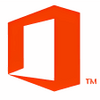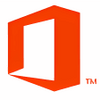Open-source eCommerce platform
Open-source eCommerce platform
Vote: (13 votes)
Program license: Free
Developer: Oscommerce
Version: 2.3.4.1
Works under: Windows
Vote:
Program license
(13 votes)
Free
Developer
Version
Oscommerce
2.3.4.1
Works under:
Windows
Pros
- Highly flexible and customizable due to open source nature
- Supportive and resourceful community
- Extensive collection of add-ons and themes
- Support for multiple payment gateways
- Advanced product management capabilities
Cons
- Requires knowledge of PHP and MySQL
- Potentially vulnerable to bugs and stability issues
- Lacks dedicated technical support
- Not ideal for beginners in web development
Comprehensive E-Commerce Solution with Community Support
osCommerce positions itself as a robust and versatile e-commerce platform designed for creating a customizable online store. Aimed at experienced web developers and advanced users, it equips businesses with a complete set of tools for both front-end catalog showcasing and back-end store management. The platform’s open-source nature, licensed under the GNU General Public License, affords users the freedom to adapt and enhance the software to suit unique business demands without the constraints of licensing issues.
Open Source Flexibility and Active Community Engagement
What sets osCommerce apart is the unrivaled flexibility it offers due to its open-source license. Users can delve into the source code and tailor the shopping system to their specific requirements, ensuring a perfect alignment with business strategies and customer expectations. This flexibility, however, requires a certain level of proficiency with PHP and MySQL, the foundational technologies of osCommerce.
The platform is not just a software solution but also fosters a communal ecosystem. The osCommerce community is an invaluable resource, brimming with developers, designers, and store owners. Users can leverage this collective intelligence to troubleshoot, exchange ideas, and obtain unique add-ons created by community members, enhancing the core functionality of the software.
Dynamic and Versatile Add-Ons
An impressive repository of extensions and modules is available to osCommerce users. This extensive range of add-ons serves as a testament to the platform’s adaptability, ensuring that online merchants can equip their websites with additional features that resonate with their business philosophy and customer preferences. The add-ons cover everything from payment and shipping modules to marketing and administrative tools, allowing a high degree of specialization.
Website Customization and Product Management
For those who prioritize branding and design, osCommerce provides robust customization options. Users can select from a variety of layout templates and themes, each designed to foster seamless navigation and intuitive customer interactions. It’s essential to note that taking advantage of the platform’s customizable nature may require in-depth programming knowledge and web design expertise.
As a product management system, osCommerce excels in its capability to organize and display products in a manner that reflects the merchant’s strategy. Users can tweak not only the aesthetic aspects but also set up promotional activities, further leveraging the website as a business tool.
Payment Gateway Diversity and Key Integrations
Understanding that payment flexibility can enhance customer convenience, osCommerce supports numerous payment gateways, including popular options like PayPal and Sage Pay. This allows online retailers to offer their customers a range of payment methods, improving the checkout experience and potentially boosting conversions.
Potential Limitations and User Responsibility
Despite its powerful features, prospective users should be aware that osCommerce’s open-source infrastructure can expose it to bugs and stability issues. Unlike some managed solutions, there is no dedicated support desk. Instead, resolutions must be sought from within the community or through the users’ own technical skills. Thus, it demands a measure of self-sufficiency and the willingness to engage with ongoing community support and self-guided problem-solving.
In conclusion, osCommerce is a comprehensive e-commerce platform that provides excellent control and customization to users adept in web development. While its open-source framework can be seen as a double-edged sword, the collective strength of its community and the ability to create a bespoke shopping experience solidify its position as a strong contender for online commerce solutions.
Pros
- Highly flexible and customizable due to open source nature
- Supportive and resourceful community
- Extensive collection of add-ons and themes
- Support for multiple payment gateways
- Advanced product management capabilities
Cons
- Requires knowledge of PHP and MySQL
- Potentially vulnerable to bugs and stability issues
- Lacks dedicated technical support
- Not ideal for beginners in web development




